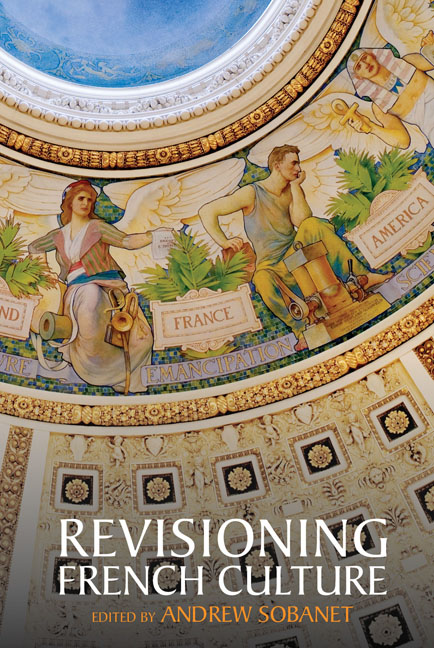Book contents
- Frontmatter
- Contents
- Introduction
- I France in Perspective: The Hexagon, Francophonie, Europe
- II Visions of the World Wars, or L’Histoire avec sa grande hache
- III Refractions and Reflections
- IV French Literature, Revisioned
- V The Subject in Focus
- VI Philosophical Lenses
- VII Coda
- Contributors
- Acknowledgments
- Index
20 - ‘African philosophy’: The History of an Expression
- Frontmatter
- Contents
- Introduction
- I France in Perspective: The Hexagon, Francophonie, Europe
- II Visions of the World Wars, or L’Histoire avec sa grande hache
- III Refractions and Reflections
- IV French Literature, Revisioned
- V The Subject in Focus
- VI Philosophical Lenses
- VII Coda
- Contributors
- Acknowledgments
- Index
Summary
To present philosophical activity on the African continent requires, first of all, exposing a recent history, beginning around the Second World War: that of the very term ‘African philosophy’ or, to put it differently, that of the association of the concept of ‘philosophy’ with the African continent. I will first consider the history and the meaning of that association. I will proceed to examine the questions and the controversies around the term, around characterizing philosophical thinking as African. I will then conclude on the political uses of ‘African philosophy.’
Associating ‘Africa’ and ‘Philosophy’
In broad terms, the history of the term ‘African philosophy’ is the history of a book written by the philosopher and theologian Placide Tempels, a Franciscan missionary and Belgian citizen who with his book, Bantu Philosophy, was among the first to recognize the existence of an African philosophy.
What, then, is the history of this book, which must be acknowledged as foundational for a whole intellectual current addressing ‘African philosophy,’ even if its author was not, strictly speaking, African? I say ‘strictly speaking’ since, clearly, philosophical activity on or in Africa is not exclusively the concern of those who are African by birth. Father Tempels arrived in what was then the Belgian Congo in the 1930s in order to do what missionaries do: evangelize and convert. To this end, he learned local languages, instructed himself in oral culture, and took an interest in proverbs, in the ways of saying, doing, and being of the populations he aimed to bring into the Christian religion. He was also, certainly, interested above all in the region's religions. During the war he began to write a book, in Dutch, on his experiences and on what, after many years ‘in the field,’ he believed he had come to understand of the philosophy at the heart of the different aspects of the lives of those he hoped to see become followers of the Church.
I have used the term ‘Philosophy.’ This word should not be understood in the diluted and banal sense of a ‘way of seeing things’ or a ‘world view.’ Father Tempels's thesis was that there exist a certain number of philosophical principles, or, more precisely, ontological ones, which have the coherence of a system, and which form the basis of all other spheres of Bantu society: law, religions, political institutions, art.
- Type
- Chapter
- Information
- Revisioning French Culture , pp. 291 - 302Publisher: Liverpool University PressPrint publication year: 2019

